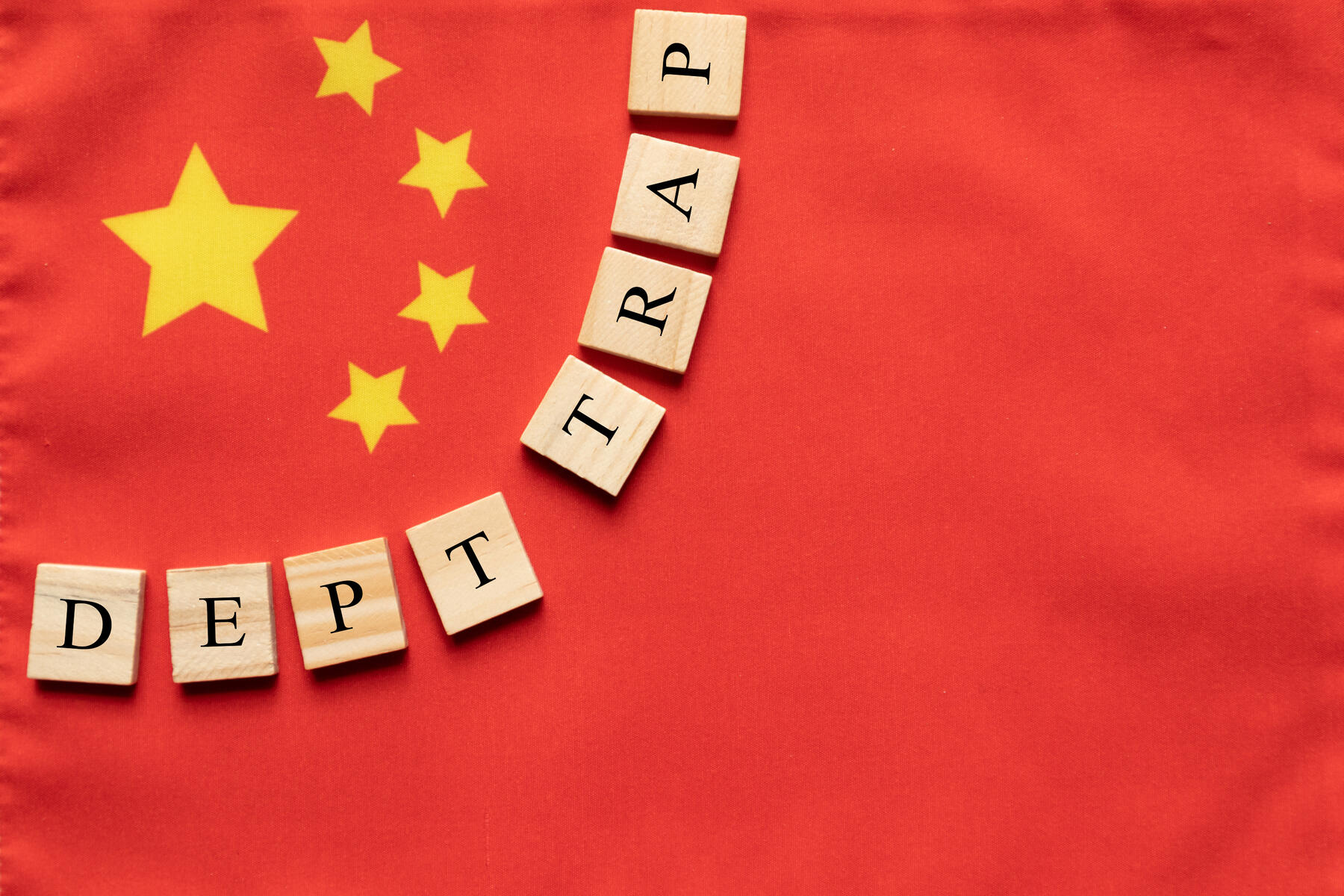EFSAS Conference in House of Commons: China's Expansionism in South Asia
15-11-2023 - House of Commons, UK Parliament - London
In collaboration with the Foreign Policy group of the UK Labour Party, the European Foundation for South Asian Studies (EFSAS) organized a conference, titled 'China’s Expansionism in South Asia', in Committee Room 5 of the House of Commons - UK Parliament, in London on 15 November 2023. A group of international experts including MPs presented their views while deliberating upon the topic and discussing the ramifications of China’s economic and geopolitical expansionism in the region of South Asia and beyond. The event was chaired and moderated by Mr. Junaid Qureshi, Director EFSAS and was extremely well attended by a large number of participants, including Diplomats, MP’s, Policy Advisors, Researchers, Professors, human rights activists and think tank and NGO representatives. The speakers included Catherine West - Member of Parliament Labour Party | Shadow Minister for Asia and the Pacific, Peymana Assad - Representative of the London Borough of Harrow Council | Labour Party UK, Gray Sergeant - Research Fellow Council of Geostrategy | Chair of Hong Kong Watch, Burzine Waghmar - SOAS South Asia Institute | Former Inaugural Visiting India Fellow RUSI-London, Dr. Said Alam Mehsud - Writer | Ex-advisor on CPEC to KPK Provincial Government and Parliament in Pakistan and James Jennion - Chair of the Working Group on China at the Labour Foreign Policy Group.
Catherine West – Member of Parliament and Shadow Minister for Asia and the Pacific – opened her remarks with a reminder of the importance of questioning China's growing role on the international scene, and more specifically in South Asia, and how we should respond as observers and political parties. She expressed her concern about the increasing deployment of the People's Liberation Army (PLA) in international waters, China's bellicose stance towards Taiwan, China's growing expansion into developing countries, the delicate situation of the Hong Kong people and the constant strengthening of China's naval presence in the Indo-Pacific region. She highlighted the lack of concrete measures taken by the current government in the face of the many human rights violations committed by China, as well as the complacency of certain members of the government. Reaffirming the Labour Party's intransigence on human rights, Catherine West called for reasoned and cautious cooperation.


Based on three main components - Challenge, Compete and Cooperation - the Labour Party's Sino-British strategy intends to focus on major issues such as climate change, trade and global health. In this regard, she recalled the commitments already made by her party to achieve its objectives, including action to protect supply chains from human slavery. This also includes amendments to the Public Procurement Bill and the Health and Social Care Bill to exclude all Chinese companies complicit in human slavery in the manufacture of textiles. Finally, Catherine West reiterated the Labour Party's desire to re-engage with its European partners by adopting a new European Security Pact, aimed at enabling a unified response to China. She underlined that the Labour Party is determined to respond firmly to China's expansionism and to put an end to the impunity and laxity currently enjoyed by Beijing.
James Jennion – Chair of the Working Group on China of the Labour Foreign Policy Group - underlined the complexity and importance of the region, as well as its close historical links with the UK. He also highlighted the many challenges faced by the region, including the lack of democracy and the growing trend of serious human rights abuses, particularly in China, Pakistan, Afghanistan and Bangladesh. Mr. Jennion believes that South Asia will undeniably assume a central position in international relations in the coming years, underlining the importance of developing a pragmatic and thoughtful foreign policy. China, aware of this reality, has already taken the lead in multiplying infrastructure projects in the region, as demonstrated by the Belt and Road Initiative and the China-Pakistan Economic Corridor.
According to James Jennion, understanding the actions and motivations of the government in Beijing is essential to successfully challenging Chinese aggression. For this reason, the UK Labour Party has committed to conduct an audit of UK-China relations, including an assessment of the diplomatic activities of the two countries to effectively determine where the relative influence of the respective countries lies. The stated aim is to develop a new, proactive approach to British diplomatic engagement in the region. This would not be possible without an acute knowledge of the national, international and regional dynamics underway.


Mr. Burzine Waghmar – SOAS South Asia Institute and former inaugural visiting India fellow RUSI-London – discussed the political ramifications of China's expansionism on other Asian States, including India, Pakistan and Nepal. Mr. Waghmar explained that China's success in spreading its influence across the continent is largely the result of its ability to attract neighbouring States with economic deals that sound too good to be true, and frequently turn out to be disappointing. As a result, India's regional primacy in South Asia can no longer be assumed, due to China's growing aggressive and unequal relationships with smaller nations in the region, including Nepal, Sri Lanka, the Maldives and Bangladesh. Mr. Waghmar highlighted how it is a fallacy to assume that only the larger nations, such as China, India and Pakistan, matter on the Asian geopolitical stage. In actuality, the smaller States in South Asia have been able to leverage China's rising power to produce tangible benefits for the ruling classes of these countries. Furthermore, it is also rash to conclude that these smaller nations are merely the exploited victims of China, when in fact they are oftentimes also culpable due to corruption, ill-governance and lack of democracy.
China is an attractive partner to such countries as Pakistan, as its economic deals come with no insistence on qualifiers, political transparency or human rights accountability. With that said, Mr. Waghmar noted that Beijing is not interested in provoking a rising India endlessly. For instance, China no longer shares Pakistan's zeal to internationalise the Jammu & Kashmir issue. In this way, there is a tacit cold peace between China and India and both are careful to not let simmering tensions boil over into a full scale conflict. China knows that it cannot permanently alienate India, but it has attempted to entrap it through its growing relations with neighbouring States, in addition to leveraging its water supply. Here again, it can also be seen how smaller States can act as important players, as Nepal’s supply of water and hydro-electricity to India has made it an attractive partner to China’s Belt and Road Initiative. While relations between China and Nepal have flourished in recent years, China's relationship with Pakistan has remained complicated. Nevertheless, Mr. Waghmar stressed that Pakistan is deeply interested in maintaining its relationship with China, due to the economic benefits provided by the China Pakistan Economic Corridor for the Military Establishment of Pakistan, the country’s de facto rulers. This corridor, however, has granted China significant leeway to manipulate Pakistan's foreign policy, including its refusal to stand with the Uyghur community in Xinjiang. In light of these developments, Mr. Waghmar concluded that China has been effective in its efforts to expand its influence across the South Asian region, all the while being careful not to cause an international incident.


Dr. Said Alam Mehsud – Writer and former advisor on CPEC to the Khyber Pakhtunkhwa (KPK) Provincial Government and Parliament in Pakistan – thoroughly explained why the China-Pakistan Economic Corridor is important for China and what it means in terms of geopolitics in South Asia. Throughout his very detailed presentation, Dr. Said highlighted how the CPEC projects are economically and socially impacting the Pakistani society, creating deep regional and class divisions. Dr. Said explained that two prerequisites that China needed to complete the CPEC projects in Pakistan were an uninterrupted supply of electricity, and an uninterrupted supply of gas. These represented unsustainable expenses that Pakistan had to cover. Moreover, the initial route of CPEC has been changed over time: the first-planned route, starting in Xinjiang, passing through Peshawar and Quetta, and finally reaching Gwadar, was preferred by China, as it was 600km shorter than the final-decided route, which passes through Lahore (Punjab) and Karachi before reaching Gwadar. The Pakistani Federal Government decided to change the route to the second one, benefiting the region of Punjab. The Pashtun region, therefore, remains without a railway connection, while in Punjab, a new railway system has been constructed.
Dr. Said highlighted that not a single project of the CPEC passes through the Pashtun region and that the $34 billion meant to finance the projects went only to the ruling elite of Punjab. The route for the liquified natural gas (worth $2.5b), also only goes from Gwadar to Punjab. The region of Punjab received a share of 80.4% of the budget allocation of CPEC, the rest is to be split among the other regions: FATA received 0%, Gilgit Baltistan 1.13%, Khyber Pakhtunkhwa 1.14% and Balochistan 0%, while Dr. Said highlighted that Gilgit Baltistan is constitutionally and legally not a part of Pakistan. The remaining 17% of the budget of CPEC is allocated to connect Punjab with Gwadar and the Karakoram Highway (KKH). Gwadar is located in Balochistan, which, apart from the port, is not getting any shares of the budget and Baloch people now require a permit to enter Gwadar. The actual beneficiaries of CPEC are the elite class of Pakistan, composed of 87% Punjabi people and according to Dr. Said all the projects got diverted to this area. Dr. Said concluded his presentation by underlining that the vast majority of Pakistani people remain untouched by any benefit from the CPEC projects.


Grey Sergeant – Research Fellow at the Council of Geostrategy in London and Chair of Hong Kong Watch delved into China’s relationship with India. As part of his research, Mr. Sergeant has tracked the political developments occurring in the Indo-Pacific region, which he expressed are vitally important to fully understand how China behaves towards smaller nations near its borders. While the current tensions between China and Taiwan are well known globally, the question remains as to whether this strained relationship is the norm for China, or whether this dynamic is an outlier to its typical international behaviour. Mr. Sergeant noted that there is a risk among academics to think that Taiwan’s long history with China makes its relationship with the State an exception to the norm and once China has seized the region its desires will be fully satiated. In reality, China's behaviour towards Taiwan is indicative of its attitude towards all Asian States smaller than itself. This is evident by the clear parallels which can be drawn between Taiwan and Bhutan, which has also suffered with border disputes between itself and China. For decades Chinese authorities have sent Tibetan nomads into Bhutanese territories in order to claim historic grazing rights over certain parts of the countryside. Over time, this land has become the site for new Chinese infrastructure, starting off as roads and villages and soon becoming security checkpoints, warehouses and towns. This growing Chinese presence in the country has served as a form of coercive diplomacy which has helped leverage Bhutan to negotiate on Chinese terms.
This activity has not gone unnoticed by India, which has serious strategic concerns over this expansionist mentality from China. India's refusal to allow Chinese aggressive belligerence in the region has brought the two countries to frequent conflict with one another, however, many of the disputes between the two countries, including their border skirmishes and fights over water systems, are clearly manufactured pressure points by China, as China is able and willing to solve these same problems with other neighbours, but refuses to do so with India. Concluding his remarks, Mr. Sergeant expressed that Beijing’s desire to instigate a new hegemony across Asia speaks not only to its own self-perception, but also to its dismissive attitude towards smaller nations in the region.


Peymana Assad - Representative of the London Borough of Harrow Council of the Labour Party UK intervened on the growing influence of China in Afghanistan. Ms. Assad opened her intervention by sharing with the other speakers and the audience her personal story, putting emphasis on the first time she visited Afghanistan, her homeland, in 2007. That was the first time she realized in first person the powerful influence that China has on Afghanistan’s politics and economy. Since the Taliban take-over, China increasingly stepped up its projects in the country, creating a situation where many Uyghurs who took refuge in Afghanistan during the first Islamic Republic got forcefully deported back to China. Since the withdrawal of US forces from Afghanistan, Western influence in the region considerably declined, leaving space for China to impose its expansionism. China claims its security issues in Afghanistan to be related to the Uyghur East Turkestan Independence Movement, an organization that China accuses of promoting separatism and terrorist attacks inside of China. Ms. Assad explained that, since the Taliban takeover, China defined its policy around this issue, formally stating that its intent is to prevent instability and terrorism in the region.
In Ms. Assad’s opinion, there are three reasons for China’s interest in Afghanistan: the first being, Diplomacy. While no other country has a political representation in Afghanistan at the moment, China formally presented a new Ambassador to the Taliban elite in Kabul recently. In Ms. Assad’s opinion, this is incredibly worrying, since this move legitimises a terrorist regime which denies basic rights to half of its population. The second diplomatic problem highlighted by Ms. Assad is the relationship with Pakistan. Afghanistan and Pakistan have had many issues in the past, among which Pakistan’s support to the Taliban. At the moment, Pakistan is using the BRI as a way to entice China into a deal, by also convincing the Taliban to be part of this initiative. Pakistan continues to exercise control over the Taliban in terms of policy implementation and hopes to solidify that further by these moves. The second is, Security. China claims its engagement with the Taliban regime to have a counter-terrorism reason, however, this is tied to the BRI, making sure that Chinese security officials have access to NATO airbases. And lastly, Economics. The BRI deals are only convenient for China which promised to build mines, factories, schools and railways, and create jobs and stability for the Afghan people, however, even the Taliban have now admitted the poor convenience of these contracts. Ms. Assad highlighted that currently in Afghanistan, half of the population is struggling with food instability, flooding, and earthquakes and the country does not need another regional power to worsen the already fragile situation.


Ms. Assad’s intervention was followed by a dynamic Q&A session, during which the audience had the chance to ask questions and exchange views with the speakers on various issues, such as the position of the Labour Party towards China’s expansionism in South Asia and possible policy implementations, the BRI’s role in increasing China’s soft power and India’s increasing relations with Europe as a step towards a multipolar system.
In Mr. Jennion’s opinion, the UK is not doing enough to prevent Chinese expansionism and influence in the region, using its role as a regulatory superpower to develop international development projects. Answering a subsequent question, Ms. Assad added that due to other international issues such as the war in Ukraine and the Israel-Palestine conflict, South Asia-related issues are left uncovered by the media and the politics in the West, subsequently giving more space to China to pursues its interests. The UK and Western countries should not forget the consequences of turning their back on South Asian countries and more should be done in terms of active engagement with those countries in the form of aid, infrastructure, trade, and development.


Mr. Waghmar suggested that, despite Beijing trying to show its concerns related to South Asian issues, it does not want to get too involved. After sharing data on Chinese economic investment in the region, Mr. Waghmar argued that China is not interested in social and economic issues of countries such as Afghanistan, Pakistan, Sri Lanka or Bangladesh. On the contrary, its mere interest is China’s own economic growth and influence in the region.
Coming towards the end of the event, Mr. Sergeant argued that China’s expansionism in South Asia has pushed India to the crossroads and possibly toward the United States despite its traditional neutral and non-aligned role, which China may well rue in the future.
For videos of the Conference - Click here





